Namcha Barwa, is a mountain belonging to the Himalaya Mountains, which means "a spear stabbing into the sky" in Tibetan language and is regarded as "Father of all mountains in Tibet". It is the highest mountain in Nyingchi city of Tibet autonomous region, with its peak rising 7,782 meters above the horizon.
There is a popular saying among local Tibetan residents: "When 10 people come here to see the Namcha Barwa peak, nine of them will fail to see it." The reason is Nyingchi rains a lot throughout the year, and its huge triangular peak is covered with snow and shrouded by clouds and mist. The peak does not show its beauty easily, so it's also called Xiunvfeng, meaning "a shy girl-like peak".
Local residents say if people travel in Nyingchi in peak tourist seasons and are able to see the Namcha Barwa peak, then they are "extremely lucky". Check out the video and pictures to enjoy the magnificence of this rarely-seen peak.
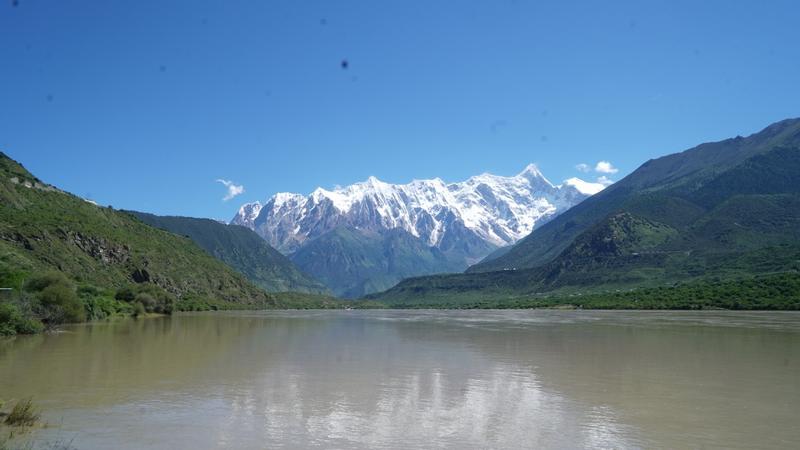 The magnificent view of Namcha Barwa peak in Nyingchi city, Southwest China's Tibet autonomous region, on Aug 18, 2020. (WANG YUXI / CHINADAILY.COM.CN)
The magnificent view of Namcha Barwa peak in Nyingchi city, Southwest China's Tibet autonomous region, on Aug 18, 2020. (WANG YUXI / CHINADAILY.COM.CN)
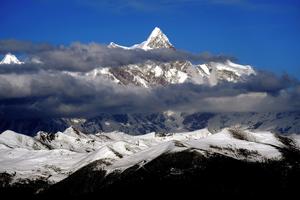 The magnificent view of Namcha Barwa peak in Nyingchi city, Southwest China's Tibet autonomous region, on March 27, 2020. (PHOTO / XINHUA)
The magnificent view of Namcha Barwa peak in Nyingchi city, Southwest China's Tibet autonomous region, on March 27, 2020. (PHOTO / XINHUA)
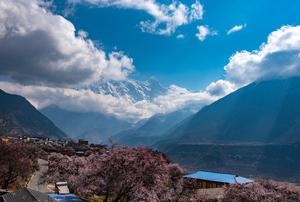 The magnificent view of Namcha Barwa peak in Nyingchi city, Southwest China's Tibet autonomous region, on April 1, 2020. (PHOTO / XINHUA)
The magnificent view of Namcha Barwa peak in Nyingchi city, Southwest China's Tibet autonomous region, on April 1, 2020. (PHOTO / XINHUA)
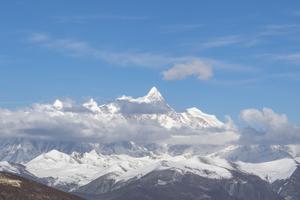 The magnificent view of Namcha Barwa peak in Nyingchi city, Southwest China's Tibet autonomous region, on March 27, 2020. (PHOTO / XINHUA)
The magnificent view of Namcha Barwa peak in Nyingchi city, Southwest China's Tibet autonomous region, on March 27, 2020. (PHOTO / XINHUA)
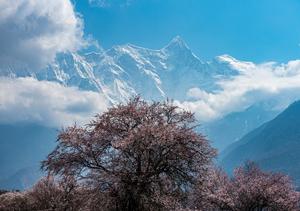 The magnificent view of Namcha Barwa peak in Nyingchi city, Southwest China's Tibet autonomous region, on April 1, 2020. (PHOTO / XINHUA)
The magnificent view of Namcha Barwa peak in Nyingchi city, Southwest China's Tibet autonomous region, on April 1, 2020. (PHOTO / XINHUA)
 The magnificent view of Namcha Barwa peak in Nyingchi city, Southwest China's Tibet autonomous region, on March 27, 2020. (PHOTO / XINHUA)
The magnificent view of Namcha Barwa peak in Nyingchi city, Southwest China's Tibet autonomous region, on March 27, 2020. (PHOTO / XINHUA)
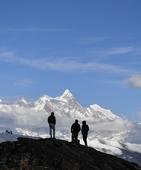 Tourists enjoy the magnificent view of Namcha Barwa peak in Nyingchi city, Southwest China's Tibet autonomous region, on March 27, 2020. (PHOTO / XINHUA)
Tourists enjoy the magnificent view of Namcha Barwa peak in Nyingchi city, Southwest China's Tibet autonomous region, on March 27, 2020. (PHOTO / XINHUA)


